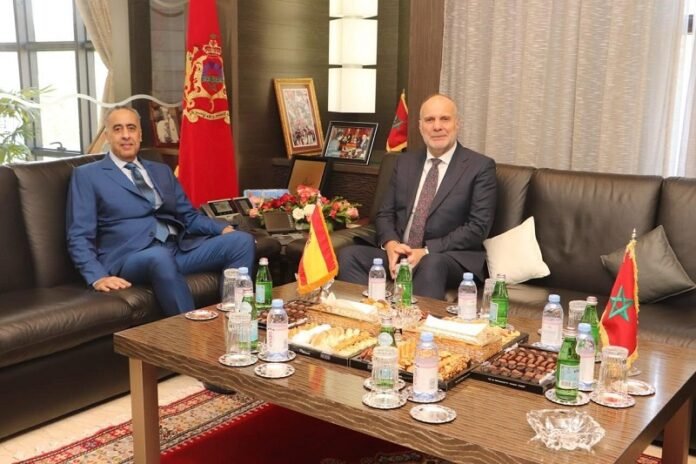The visit of the Spanish Civil Guard intelligence chief signals a strategic shift in cooperation—from counterterrorism to securing the 2030 World Cup
Rabat – April 23, 2025 | Editorial Team: Security Analysis Desk
For his first international trip since his appointment, General Luis Baleiz Beniero, head of intelligence at the Spanish Civil Guard, chose Morocco. He was received this Wednesday in Rabat by the Director General of National Security and Territorial Surveillance, Abdellatif Hammouchi.
This visit carries significant symbolic weight, reaffirming the strength of the strategic partnership between Rabat and Madrid at a time when transnational threats — terrorism, organized crime, instability in the Sahel-Sahara region — are intensifying across the Mediterranean.
Why Rabat First?
In an uncertain geopolitical context, a central question arises:
Why did the Spanish intelligence chief choose Morocco as his first destination?
Most likely because of the growing credibility of Morocco’s security model, built on anticipation, operational intelligence, and institutional coordination.
This partnership is no longer limited to counterterrorism efforts. It now extends to the joint security preparation for the 2030 World Cup, co-hosted by Morocco, Spain, and Portugal — a challenge that requires a comprehensive Euro-Mediterranean approach to security.
Toward a New Security Alliance?
The talks between the two sides explored existing cooperation mechanisms, successful joint operations, and ways to strengthen coordination to neutralize regional and global security threats.
But another question arises:
Are we witnessing the birth of a regional model that can be exported to other nations?
Can this Moroccan-Spanish alliance serve as a foundation for an expanded regional security architecture?
Proactive Security… Political Inertia?
Notably, while security cooperation progresses confidently, political relations — especially on migration and trade — remain stalled.
Is security succeeding where diplomacy fails?
Is the Ministry of the Interior assuming the role of a parallel diplomacy capable of easing tensions and building trust?
A Message to Europe from Rabat?
By receiving the Spanish general in Rabat, Morocco is sending a clear message to its European partners:
It is more than just a neighbor to the south — it is a reliable strategic ally and a pillar of shared, long-term security.
🔹 Conclusion:
What was once ad hoc collaboration has now evolved into a structured and strategic partnership, built on anticipation, complementarity, and mutual trust. The time has come to develop a comprehensive and balanced vision that embraces all aspects of bilateral relations.


